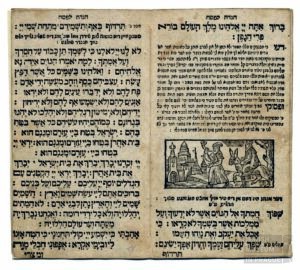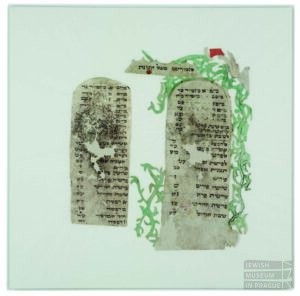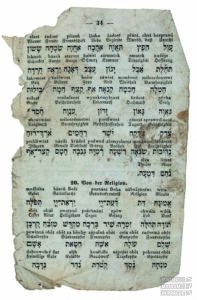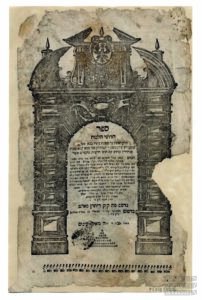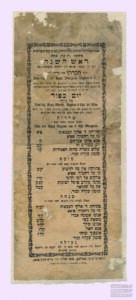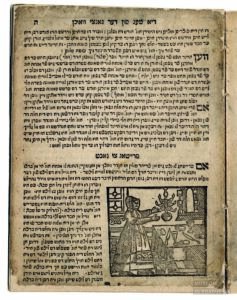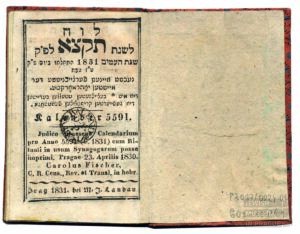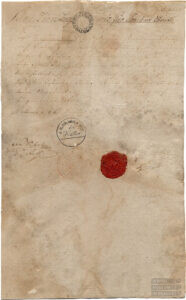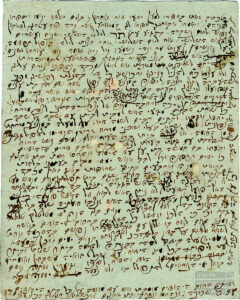The most frequent textual relics discovered in genizot are Hebrew prayer books, both for holidays (machzorim) and for everyday use (siddurim). These books were used primarily by men; Yiddish prayers (tkhines) were intended for women in earlier times. The large amount of siddurim and other prayer books found in Bohemian and Moravian genizot reflect changes in linguistic preferences: for both men and women, the popularity of Hebrew prayer books, occasional explanatory notes in Yiddish and Yiddish prayers shifted to prayer books in German and, less frequently, in Czech. It is not unusual to find in genizot even humashim (printed Torah volumes), copies of the Tsene Rene (a collection of biblical stories in Yiddish), tractates of the Talmud (the Oral Torah), and a wealth of hand-written and printed texts on religious law and liturgy. Other frequent genizah finds include copies of the Pesach Haggadah (the text that sets forth the order of the Passover Seder), books of minhagim (Jewish customs), and pocket calendars.
